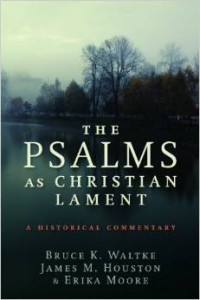There seems to be a growing discussion amongst Bible scholars about the shortcomings of Bible translations which try too hard to sound contemporary (See for example Bob Gundry’s critique of Tom Wright’s NT translation from 2 years ago).
This week I came across this essay:
Richard Hays, “Lost in Translation: A Reflection on Romans in the Common English Bible,” in The Unrelenting God: God’s Action in Scripture: Essays in Honor of Beverly Roberts Gaventa (Eerdmans, 2013)
The Common English Bible came out a couple of years ago having been overseen by a more mainline group. In this essay Hays reveals that he and Beverly Gaventa were given the task of writing the first draft of the translation of Romans. However, Hays was particularly disappointed in the translation which was finally published, after being altered by “readability experts.” The rest of his essay is an investigation of what happens when the laudable goal of clarity is reduced to “easy reading” and is not tethered to theological care. There is a warning here for any translation project.
As Hays states, “to turn a magisterial theological reflection such as Romans into an easy-reading text for the average American seventh-grader entails certain modifications, tradeoffs, and sacrifices” (84). I think this is an all too common mistake when the goal is for the “man on the street” to be able to understand the text on his own. As I have argued before, this completely misses the need for the teaching function of the church. There is a basic level of understanding, but we ought to expect any translation of the Bible to have rough edges, difficult portions- precisely because the original has these!- which will require much thought and should drive us to the teachers God has given to the church (Eph 4:11-12).
Hays makes his case with specific examples and pointed, punchy writing.
He states, “The repeated use of contractions and low-intensity everyday diction creates a relaxed conversational tone that lowers the temperature of the discourse.” (85) This is a valuable point because certain texts, like Romans, are not supposed to be breezy. Casual may be the rage in our conversations (as practically all else) today, but that does not mean it is the ideal or that it matches the text we are trying to translate.
Hays critiques the translation of Rom 16:25-27, where “revelation of the mystery” has become “announcement of the secret”, saying, “The CEB’s language would be more fitting to describe, say, a delayed wedding announcement than to designate the apostolic unveiling of the hidden mystery of God’s eternal design for saving the world.” (85)
Romans 1:22 states “they were made fools”, with God as the implied actor, but the CEB says “they made fools of themselves.” Hays notes, “The translation sounds clever, and it is certainly idiomatic English; unfortunately, it obscures Paul’s theological point.” (86)
In Romans 16:13, “Greet Rufus, the one chosen/elect in the Lord” becomes “Say hello to Rufus, who is an outstanding believer”!
Hays is clear that he is not simply annoyed with how his draft was handled but concerned about a trend in translations.
“I am drawing attention to this particular translational decision in order to illustrate how the process of translation entails judgments that are deeply theological in character.” (88)
“In an effort to achieve readability, it has not only sacrificed Paul’s stylistic elegance but also subtly obscured the letter’s theological coherence on key points. It has domesticated Paul’s gospel by muting its apocalyptic notes, dulling its sharp emphasis on the priority of God’s action in Christ to effect the justification of humanity, and reducing its rhetorical grandeur to a casual, plodding discourse.” (101)
These are important points to consider.

